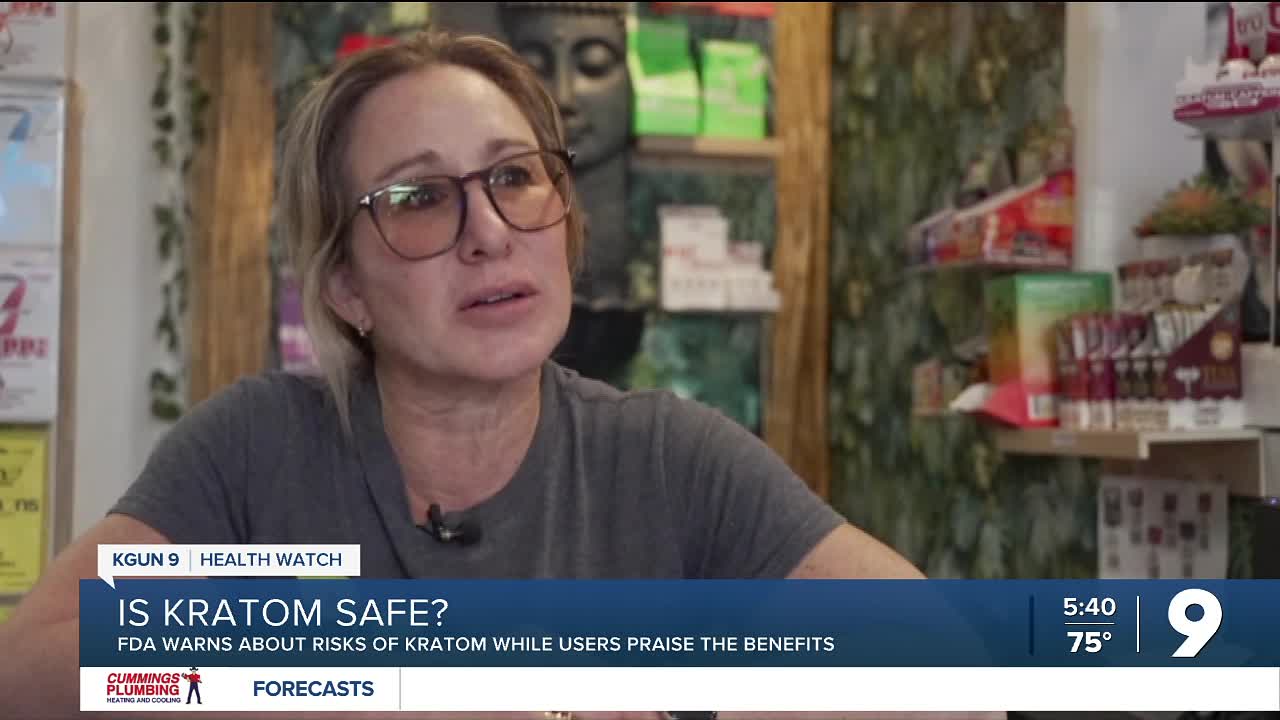TUCSON, Ariz (KGUN). — It’s green, it’s natural, and it’s showing up in tea, capsules, and powders across Arizona.
Kratom is an herbal supplement derived from a tropical tree in Southeast Asia. While some say it offers relief from pain or anxiety, the U.S. Food and Drug Administration is warning consumers that kratom is not appropriate for use as a dietary supplement.
“The problem is that as people start to learn what's in kratom, which we've done some studies on, you start to find that there's active ingredients in there called mitragynine, which actually binds to the opiate receptor. So it acts somewhat like an opiate similar to something like morphine or codeine," said Dr. Todd Vanderah, director of the Comprehensive Center for Pain and Addiction at the University of Arizona.
The FDA has not approved any prescription or over-the-counter products containing kratom or its two main chemical components, mitragynine and 7-hydroxymitragynine.
Despite that, kratom use is rising. A 2021 national survey found that an estimated 1.7 million Americans aged 12 and older reported using kratom that year.
Locally, the impact could be sparking some concerns. The Pima County Health Department has confirmed seven overdose deaths involving kratom so far in 2025, which is a rise from just two deaths reported in all of 2024.

Another major concern: kratom isn’t regulated by the FDA. That means potency and ingredients can vary widely from product to product.
At higher doses, Mayo Clinic reports that taking kratom in higher doses reduces pain and makes users feel calm and less anxious.
“You could have some bottles that have very high levels. You could have some bottles that have very little. The reason I know this is because they have done these studies with CBD in which they will say that there's a certain amount in there and none of them will actually match their label," Vanderah explains.
Many dietary supplements are not FDA-regulated in the way prescription or over-the-counter drugs are. That’s standard under the Dietary Supplement Health and Education Act of 1994 (DSHEA), which allows supplements to be sold without FDA approval as long as they don’t claim to treat or cure diseases.
Still, not everyone shares the same concerns.
Jill Sugarman, who owns three kratom shops in Tucson, says she uses the supplement herself and believes it can help when used responsibly.
"It takes away my back pain. Like literally within like 20 minutes, I can take a little bit of it, and next thing you know, it just, it's very seamless," Sugarman says.
Sugarman explains it can be misused, “Granted, like anything you can get addicted to. So I feel like it's also part of our responsibility as being adults. We have to be responsible in how we take things.”
She explains their store tests all ther products before selling them to customers. “We're not necessarily focusing on profiting we're more focusing on being of service to people and in the end like I feel like that's why we've been so successful is because our intentions are towards helping people," Sugarman explains.
Kratom is sold legally in Arizona, but you must be at least 18 years old to purchase it.
Vanderah explains, “it can be an addictive product, and taking large amounts can start to cause issues and problems just like any new opiate agonist. So you can get respiratory depression, you're going to get some constipation, but more importantly is that addiction can lead to something where you're spending your whole time trying to get more of this product."
He also worries that social media can create trends tha aren't always safe. "Social media has replaced our warning signs about maybe, again when it's numbers, right, when you think that millions and millions of people are doing it, it must be safe. That's just not correct, and it just sort of overtakes any kind of research.”
Vanderah recommends talking to your doctor if you're interested in taking kratom. Even though it's legal, Vanderah cautions users to know the potential risks associated with taking kratom.
———
Athena Kehoe is a reporter for KGUN 9, she joined the KGUN 9 team in July of 2024 after graduating from Arizona State University. Share your story ideas with Athena by emailing athena.kehoe@kgun9.com or by connecting on X/Twitter.






